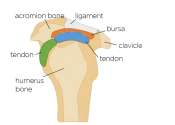New clinical practice guideline provides evidence-based recommendations for age-related hearing loss
The American Academy of Otolaryngology–Head and Neck Surgery Foundation (AAO-HNSF) has published "Clinical Practice Guideline: Age-Related Hearing Loss" in Otolaryngology–Head and Neck Surgery. This clinical practice ...
3 hours ago
0
0









